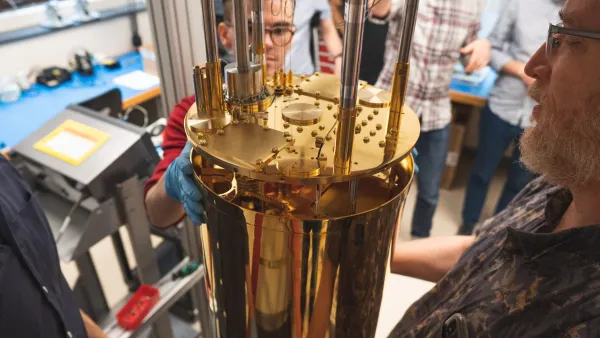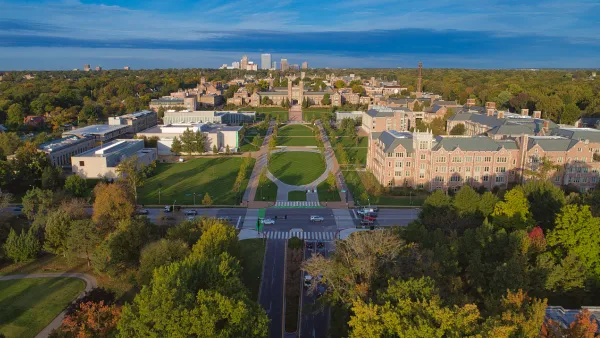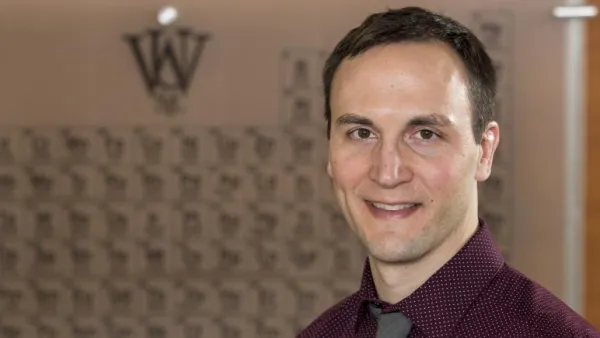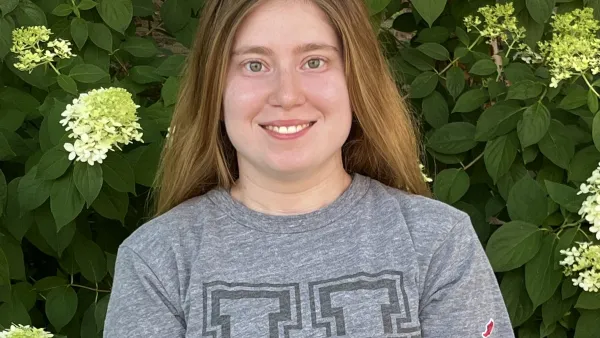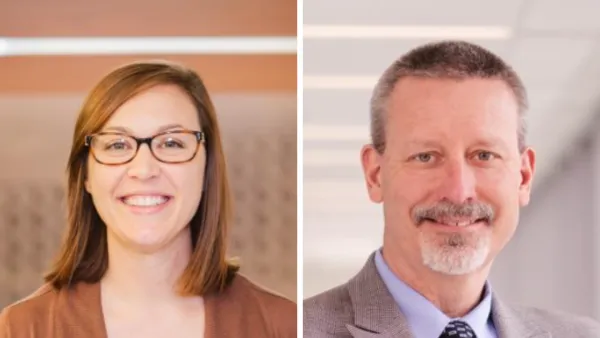The Center for Quantum Sensors (CQS) was awarded a Quantum Leap Challenge Institute (QLCI) conceptualization grant from the National Science Foundation. QLCIs are large-scale, interdisciplinary research projects that aim to advance applications of quantum information science. This conceptualization grant will provide WashU’s CQS the resources it needs to potentially develop into a fully fledged QLCI, validate the center’s work on quantum sensors as one of the most compelling areas of quantum research, and give the center a voice in shaping national collaborations around quantum sensing. The grant will support planning and team-building activities over the coming year, in preparation for the next stage of NSF funding and development.
“Our conceptualization grant aims to focus the community’s conversation around quantum sensing to try to identify the most compelling questions and the most compelling ideas for addressing those questions,” said Kater Murch, associate professor in the Department of Physics in Arts & Sciences, who led the proposal. “Our goal is to identify challenges where we can make a transformative advance in the next five years.”
Housed within Arts & Sciences, the Center for Quantum Sensors aims to engage the physics, chemistry, engineering, medical, and industrial communities to tackle quantum sensing problems that can only be addressed collaboratively. In addition to Murch, the center includes collaborators from several departments in Arts & Sciences and from the McKelvey School of Engineering: Sophia Hayes, professor of chemistry in Arts & Sciences; James H. Buckley, professor of physics in Arts & Sciences; Ron K. Cytron, professor and associate department chair of computer science and engineering in McKelvey Engineering; Erik A. Henriksen, assistant professor of physics in Arts & Sciences; Henric Krawczynski, professor of physics in Arts & Sciences; Matthew Lew, assistant professor of electrical and systems engineering in McKelvey Engineering; and Lan Yang, Edwin H. and Florence G. Skinner Professor of electrical and systems engineering in McKelvey Engineering. The cast of collaborators is set to expand this year as the center brings on graduate students from multiple disciplines and broadens its network of researchers beyond WashU.
